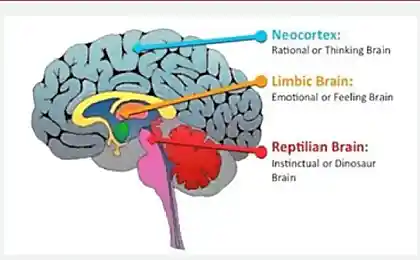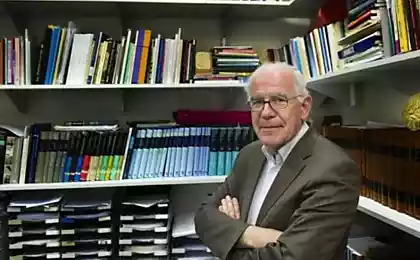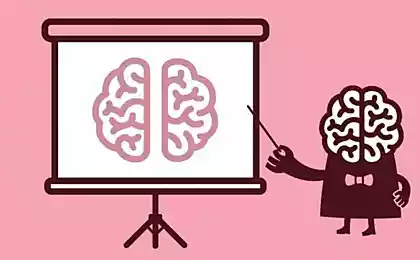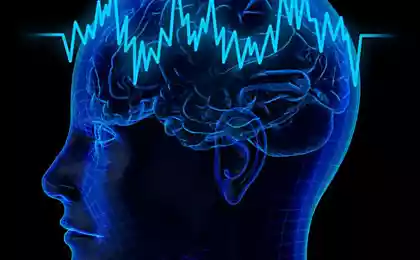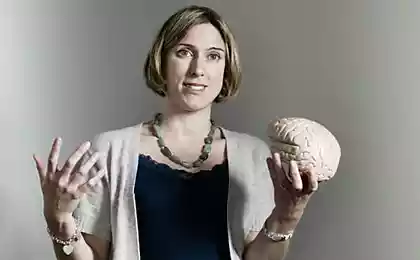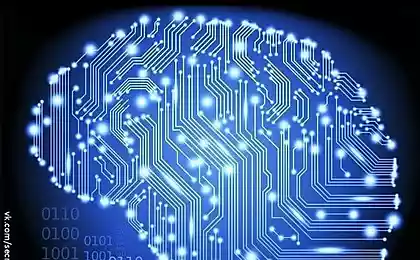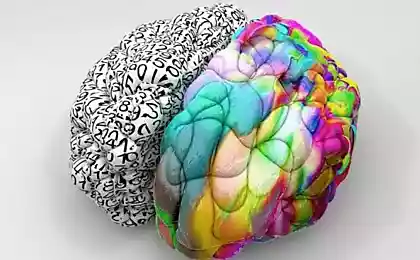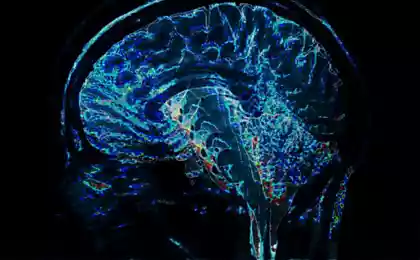461
7 excellent books for your brain
Many of us want to generate unusual ideas, to be more productive and remember more — but often on the way to a brighter life gets our own brain, which needs only funny cat pictures in social networks. We offer you 7 books that will help cheer up a head and bring your grey matter in order.

1. Roger Saipa. "Brain development"
We can all be three times better than it is now, but how to achieve this? Professional coach Roger Saipa believes that we need to efficiently use your brain, and offers to engage in its development. Of course, this is not without truths is to become a model of productivity, you have to get rid of the useless classes (including extra hours of sleep).
To perestat to worry on trifles and constantly push yourself out of your comfort zone. And then the author moves on to specific practices, shows how to memorize information, speed read, exercises for the eyes, and help the brain to quickly cope with the tasks, setting priorities.
2. John Medina. "Brain rules"
Biologist John Medina is sure that to increase productivity you don't need special exercises — enough to understand how our brain works. And here the author brought 12 of the rules. For example, the brain may hold the attention for only ten minutes, after which he should rest, switching to another object. Women better at remembering the details of what happened, and the men quickly reach the heart of the problem. Only 26 minutes of sleep will increase your efficiency by a third. The book will help you understand your own head and find a common language with her.
3. Arthur Dumchev. "Remember everything"
The author of "Remember everything" really remembers everything — for example, the number PI to 22528 decimal places. This person is obviously possible to trust in the development of memory. First, the author understands how it works — for example, personal experience, enthusiasm and willingness to share information with other people help you remember even the smallest details, and excessive emotionality, or lack of interest, on the contrary, reduce our efficiency.
Next you will learn specific practices — will remember the words better, learn foreign languages, to keep in mind-do lists and lectures, not to forget the names of new acquaintances, and important dates. So to remember the meaning of compound words, it is enough to choose the correct Association: a collision is a collision in the Coliseum is a battle, then there is a collision, the collision with the Coliseum, ready! It is important to know the correct technique.
4. Dmitry Chernyshev. "How people think"
Why some people gush unusual ideas, while others are resigned to mediocrity? Dmitry Chernyshev sees the root of the problem is that we translate life in automatic mode, not giving myself reason to think. To get out of this trance, we need to consciously set goals and to enable the brain — for example, to solve the riddles.
You should not assume that the author exaggerates the problem — the modern world does not leave us room for reflection: the films dazzle bright special effects, video games — incredible graphics. "How people think" — a visual journey through the consciousness of modern man, where each Chapter tries to bring the reader out of balance and learn to think.
5. Mark Williams and Danny Penman. "Mindfulness"
We load your brain with lots of information, which provokes stress and, in turn, loads us even stronger. According to psychologist Mark Williams and biochemist Danny Penman, the vicious circle will help meditation but not a Buddhist, and modern, developed by a research team and approved by the British Ministry of health.
And if other books in our collections teach you to think in new ways, "Mindfulness" will first ask... off the head, to calm down and cope with the stream of random ideas. Exercises from "Mindfulness" helps to structure the consciousness and not to let the brain out of control. Starting with a simple meditation in which you simply follow the breath, the authors gradually move to more complicated exercises, bringing life with automatic status. This book is a great addition to "How people think" Dmitry Chernyshev.
6. Alex Lickerman. "The undefeated mind"
Life is pain, and there's nothing you can do about it. But if one can break the slightest problem, others sustain serious blows of fate and become stronger. "Unbeatable mind" shows you how to join them. This book is not about achieving happiness, and how not to go the distance on the way to it.
Practitioner Alex Lickerman offers to change your consciousness, — not to run away from problems, and to perceive them as a source of strength, not to expect the best, and know that your way will be obstacles. It's very harsh, yet very honest book.
7. Carol Dwek. "Flexible minds"
"Agile mind" helps to get rid of one of the most dangerous errors of thinking — the opinion that your abilities are determined at birth. Wanting to praise their children, parents from a young age to convince them that they are incredibly talented, and thus stop their personal growth.
Subsequently bringing a school teacher, highlighting the standouts and favorites. Carol Dwek believes that people from a very early age it is necessary to abandon installations in the reality, because our mind works differently, being flexible, it allows us to grow and become better, constantly realizing that any disadvantage can be turned into your strengths.published
See also: Why smart people are happier when they have fewer friends
The most frequent cause of death in one picture
P. S. And remember, only by changing their consumption — together we change the world! ©
Source: vk.com/blacklionmag?w=wall-95325074_15365

1. Roger Saipa. "Brain development"
We can all be three times better than it is now, but how to achieve this? Professional coach Roger Saipa believes that we need to efficiently use your brain, and offers to engage in its development. Of course, this is not without truths is to become a model of productivity, you have to get rid of the useless classes (including extra hours of sleep).
To perestat to worry on trifles and constantly push yourself out of your comfort zone. And then the author moves on to specific practices, shows how to memorize information, speed read, exercises for the eyes, and help the brain to quickly cope with the tasks, setting priorities.
2. John Medina. "Brain rules"
Biologist John Medina is sure that to increase productivity you don't need special exercises — enough to understand how our brain works. And here the author brought 12 of the rules. For example, the brain may hold the attention for only ten minutes, after which he should rest, switching to another object. Women better at remembering the details of what happened, and the men quickly reach the heart of the problem. Only 26 minutes of sleep will increase your efficiency by a third. The book will help you understand your own head and find a common language with her.
3. Arthur Dumchev. "Remember everything"
The author of "Remember everything" really remembers everything — for example, the number PI to 22528 decimal places. This person is obviously possible to trust in the development of memory. First, the author understands how it works — for example, personal experience, enthusiasm and willingness to share information with other people help you remember even the smallest details, and excessive emotionality, or lack of interest, on the contrary, reduce our efficiency.
Next you will learn specific practices — will remember the words better, learn foreign languages, to keep in mind-do lists and lectures, not to forget the names of new acquaintances, and important dates. So to remember the meaning of compound words, it is enough to choose the correct Association: a collision is a collision in the Coliseum is a battle, then there is a collision, the collision with the Coliseum, ready! It is important to know the correct technique.
4. Dmitry Chernyshev. "How people think"
Why some people gush unusual ideas, while others are resigned to mediocrity? Dmitry Chernyshev sees the root of the problem is that we translate life in automatic mode, not giving myself reason to think. To get out of this trance, we need to consciously set goals and to enable the brain — for example, to solve the riddles.
You should not assume that the author exaggerates the problem — the modern world does not leave us room for reflection: the films dazzle bright special effects, video games — incredible graphics. "How people think" — a visual journey through the consciousness of modern man, where each Chapter tries to bring the reader out of balance and learn to think.
5. Mark Williams and Danny Penman. "Mindfulness"
We load your brain with lots of information, which provokes stress and, in turn, loads us even stronger. According to psychologist Mark Williams and biochemist Danny Penman, the vicious circle will help meditation but not a Buddhist, and modern, developed by a research team and approved by the British Ministry of health.
And if other books in our collections teach you to think in new ways, "Mindfulness" will first ask... off the head, to calm down and cope with the stream of random ideas. Exercises from "Mindfulness" helps to structure the consciousness and not to let the brain out of control. Starting with a simple meditation in which you simply follow the breath, the authors gradually move to more complicated exercises, bringing life with automatic status. This book is a great addition to "How people think" Dmitry Chernyshev.
6. Alex Lickerman. "The undefeated mind"
Life is pain, and there's nothing you can do about it. But if one can break the slightest problem, others sustain serious blows of fate and become stronger. "Unbeatable mind" shows you how to join them. This book is not about achieving happiness, and how not to go the distance on the way to it.
Practitioner Alex Lickerman offers to change your consciousness, — not to run away from problems, and to perceive them as a source of strength, not to expect the best, and know that your way will be obstacles. It's very harsh, yet very honest book.
7. Carol Dwek. "Flexible minds"
"Agile mind" helps to get rid of one of the most dangerous errors of thinking — the opinion that your abilities are determined at birth. Wanting to praise their children, parents from a young age to convince them that they are incredibly talented, and thus stop their personal growth.
Subsequently bringing a school teacher, highlighting the standouts and favorites. Carol Dwek believes that people from a very early age it is necessary to abandon installations in the reality, because our mind works differently, being flexible, it allows us to grow and become better, constantly realizing that any disadvantage can be turned into your strengths.published
See also: Why smart people are happier when they have fewer friends
The most frequent cause of death in one picture
P. S. And remember, only by changing their consumption — together we change the world! ©
Source: vk.com/blacklionmag?w=wall-95325074_15365
How to cook polenta: the basic recipe
The Russian company WayRay presented holographic car navigation system






